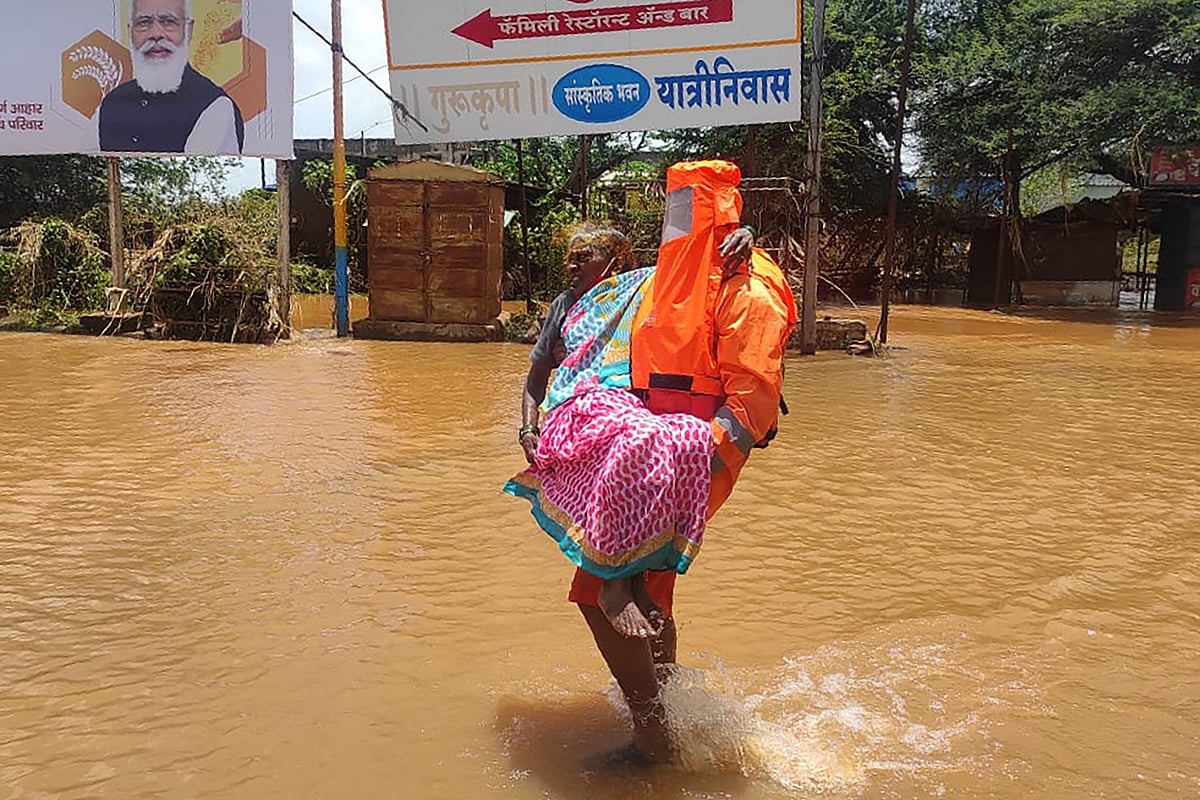
The Maharashtra cabinet, on Wednesday, decided to wait till the panchanama (assessment) of the damage caused in 11 districts is completed to finalise the compensation and relief package. Instead, the cabinet, chaired by Chief Minister Uddhav Thackeray, decided to continue to help the victims from the State Disaster Response Fund.
However, as reported by Free Press Journal, the government will provide an immediate assistance including an amount of Rs 10,000 each to those affected by the recent floods and other rain-related incidents in the state. It will be deposited in the bank accounts of the victims. The cabinet also decided to pay Rs 50 lakh to the kin of the employees of smaller municipal councils who died due to Covid-19,
A senior minister said, “The disaster management, relief and rehabilitation department made a comprehensive presentation on the situation in flood-hit districts. Once the panchanama is completed, the department will submit a proposal to compensate and provide relief to the villages in a fortnight.” He informed that the government has been supplying clothes and utensils, amongst others, to those affected.
Meanwhile, the death toll due to incessant rainfall, floods and landslides has increased
to 213. 52 are injured and 8 are still missing in 11 districts. So far, a record 4,25,879 people have been evacuated from Ratnagiri, Satara, Thane, Kolhapur, Sangli, Pune, Raigad and Sindhudurg.
According to the Chief Minister’s Office, 16 NDRF teams are currently engaged in rescue and relief operations along with two teams from the Indian Army. In all, 349
relief camps have been set up to accommodate 52,295 victims.
Meanwhile, the state cabinet also cleared a proposal for the implementation of Rs 4,601 crore Swacch Bharat Abhiyan. It will continue till 2025 with the state bearing its share of Rs 1,840.40 crore, said an official statement. The government, on Wednesday, also decided to set up a state-level organic farming standardization centre in Akola district. At present, standardization certification is done by private agencies, which is expensive for farmers.






